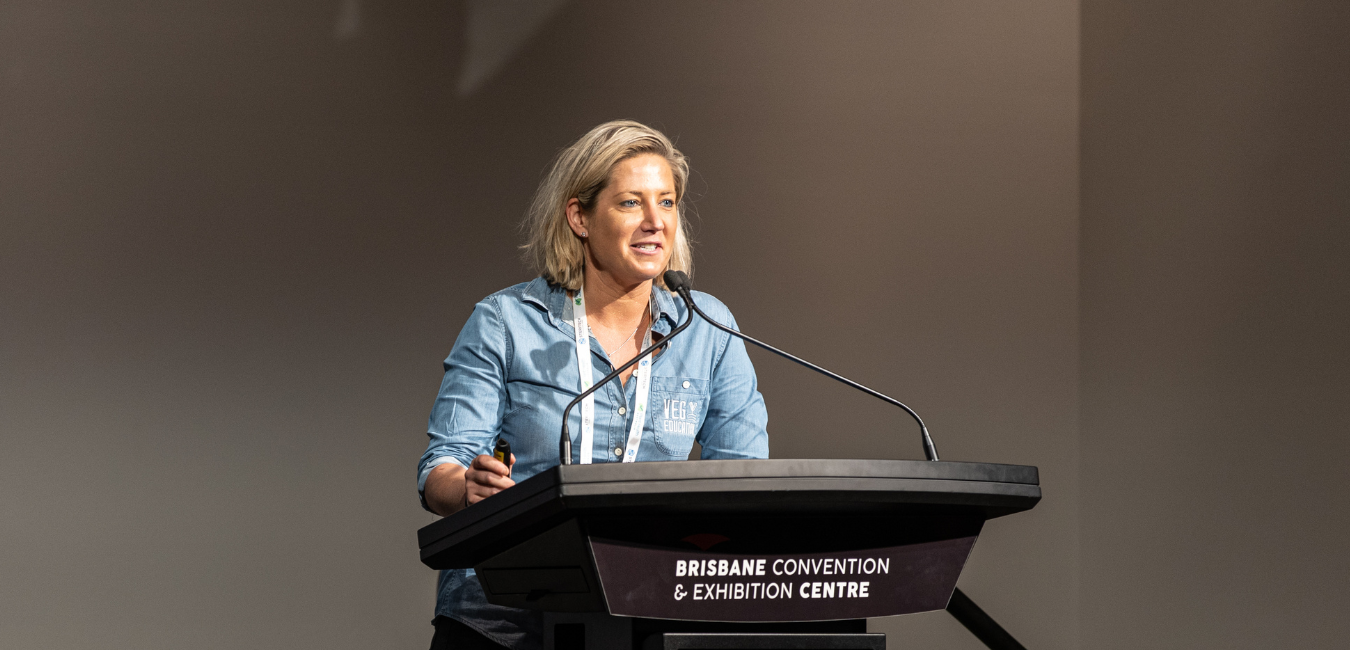
New engagement hub on fall armyworm R,D&E for hort
23 August 2022
Fact sheet: Clubroot management in brassicas
23 August 2022It’s time for growers to reclaim their value, according to Catherine Velisha, third generation vegetable grower and Managing Director at Velisha Farms. In her Women in Horticulture session at Hort Connections 2022 entitled ‘Growing Brave’ – sponsored by Boomaroo Nurseries – she discussed ways growers can let the world know how important they are, and why industry leadership needs to better reflect the workforce.
The horticulture industry and businesses must step into places they’ve been scared to before, according to Catherine Velisha.
“Veggies and fruit are the only necessity other than water and air. We can live without dairy and meat. We are growing the only thing humans and the planet need to survive, so we are the most important people in this world,” Catherine said.
A good place to start is recognising that growers are entrepreneurs.
“My grandfather came to Australia from Albania, bought some land and grew produce with the hope of selling it. If that’s not a start-up, I don’t know what is,” she said.
“Every day we take risks with money and fight the hard fight. People in tech and finance use terms like ‘entrepreneur’ to encourage young people into their industries. If we reframe our language, we allow people to think differently about our industry.”
In addition to the excitement of the stock market (lettuce prices were skyrocketing at the time), Catherine noted horticulture offers the glamour of hospitality and excitement of media.
“Without us there’s no restaurants. None of Australia’s 61 cooking shows would exist without our fresh produce. We’re the cooking sensations. We should be the ones showing the vibrance and excitement of what we do.”
Sharing stories builds awareness
While not everyone wants to be in the media, every industry member has a story to tell, Catherine said.
“Everyone needs to talk about their passions. Mine is talking about the opportunities and reframing what horticulture actually is,” she said.
“For you it might be food safety or safety on farm, but you need to find your own voice and talk to people. It could be on a simple scale like telling people how much you love working in the industry or as big as you want. The important thing is if everyone speaks up, we have a collective voice and we then attract other people to our industry.”
Future food leadership should reflect diversity
A key issue is who should lead our food futures.
Catherine noted women make up 30 per cent of the agricultural workforce. Of these, 22 per cent are in the fresh produce sector. Moreover, 70 per cent of agricultural employees from culturally and linguistically diverse backgrounds work in the fresh produce sector. However, this is not reflected at higher levels.
“I am shocked every time I come to this event,” Catherine said. “Our faces and our leaders do not represent our workforce.”
She suggested business leaders, both men and women, should look at who they’re bringing up behind them.
“The only way we can really look after our industry is if we have boards, CEOs and team leaders that reflect our workforce. That’s my challenge to you today,” Catherine said.


